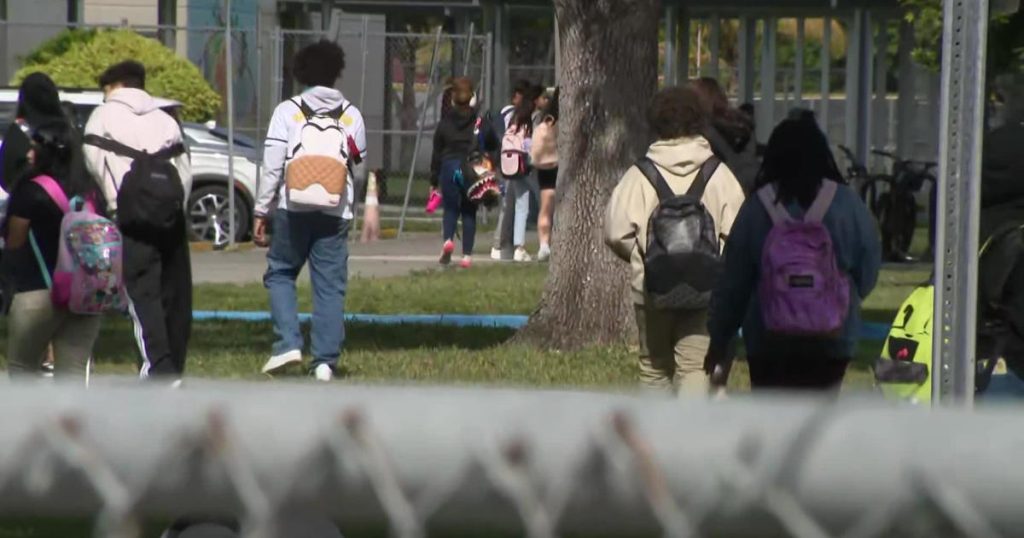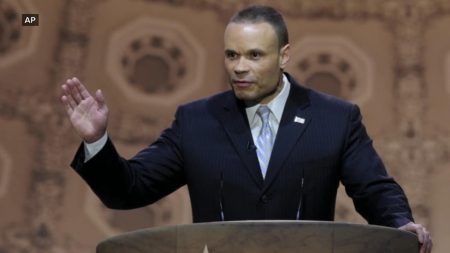Fear and Uncertainty: The Impact of Immigration Policies on U.S. Schools
In the wake of President Trump’s immigration policies, schools across the United States are grappling with an unprecedented wave of fear and uncertainty. From false rumors of immigration raids at schools to real-life enforcement actions, the anxiety among immigrant families has reached a boiling point. Many parents, even those with legal status, are struggling to separate fact from fiction as their children’s sense of safety in schools is increasingly compromised. The situation has become so dire that some families have chosen to keep their children home, fearing the worst. For schools, this has meant scrambling to reassure families, provide resources, and navigate the complexities of a rapidly shifting political landscape.
False Rumors and Panic: The Case of Fresno and Alice, Texas
One of the most unsettling examples of this anxiety unfolded in Fresno, California, where rumors of impending immigration raids at schools spread like wildfire on social media. While these rumors were ultimately debunked as hoaxes, they left many parents in a state of panic. Similar incidents occurred in Alice, Texas, where school officials mistakenly informed parents that Border Patrol agents might board school buses to check students’ immigration papers. These false alarms have had a profound impact, leaving families on edge and undermining trust in the very institutions meant to protect and educate children.
In Denver, Colorado, the situation took a more alarming turn. A real immigration raid at an apartment complex led to a significant drop in school attendance, as scores of students stayed home out of fear. The Denver Public Schools system has since filed a lawsuit against the Department of Homeland Security, accusing the Trump administration of interfering with the education of its students. The district argued that the raid and the broader climate of fear have distracted from its core mission of providing education and support to its students.
A Mother’s Fear: The Story of Angelib Hernandez
The human cost of these policies is nowhere more evident than in the story of Angelib Hernandez, a mother in Aurora, Colorado, who began keeping her children home from school a few days a week after President Trump’s inauguration. Her fears intensified as rumors of immigration agents targeting schools spread through Spanish-language media and social networks. Despite assurances from school officials that her children are safe, Hernandez no longer feels confident sending them to school. "They’ve told me, ‘Hopefully we won’t ever be detained by ourselves,’" she said, recounting her children’s fears. "That would terrify them." Hernandez, who arrived in the U.S. a year ago and is seeking asylum, now lives in constant uncertainty, her legal status precarious under the shifting immigration landscape.
Pushing Back: Conservative Efforts to Restrict Access to Education
While some schools and officials have gone out of their way to reassure and support immigrant families, others have taken a harder line. In Oklahoma, Republican state superintendent Ryan Walters pushed a rule that would have required parents to show proof of citizenship to enroll their children in school. Although the rule was vetoed by the state’s Republican governor, it reflects a broader trend of conservatives questioning whether undocumented immigrants should have access to public education. In Tennessee, Republican lawmakers have introduced a bill that would allow school districts to decide whether to admit students without legal status, a move designed to challenge a decades-old Supreme Court precedent guaranteeing all children the right to an education, regardless of immigration status.
The Broader Implications: Fear’s Impact on Education
The impact of these policies extends far beyond the families directly affected. Research has shown that immigration raids and enforcement actions can have a chilling effect on entire communities, leading to lower attendance, decreased academic performance, and a general sense of insecurity among students. In North Carolina and California, for example, studies have found that Hispanic students’ test scores drop and enrollment declines when local police participate in immigration enforcement programs. In Fresno, school officials reported a daily drop in attendance of 700 to 1,000 students since President Trump took office, with many families too afraid to send their children to school. The fear is not limited to undocumented students; even native-born children of undocumented parents are affected, as they worry about the safety of their families.
Standing Together: Schools’ Efforts to Support Families
In the face of these challenges, schools and educators have emerged as a source of hope and resilience. In Fresno, the school district has partnered with local organizations to provide legal advice, host community meetings, and help families plan for the worst-case scenario. When one family was too afraid to leave their home to buy groceries, a school principal stepped in to deliver food and offer emotional support. These efforts underscore the vital role schools play not only in educating students but also in supporting their families during times of crisis. While the road ahead remains uncertain, the commitment of educators and administrators to their students’ well-being offers a glimmer of hope in an otherwise fraught landscape.















